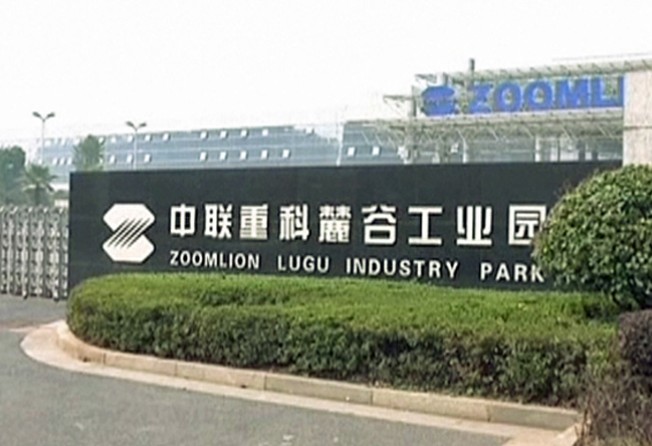
Zoomlion shares rise after reporter admits to writing false articles
Analysts still concerned over the large number of customers who have yet to pay their bills

The shares of Zoomlion Heavy Industry Science and Technology rallied yesterday, after a reporter confessed on mainland television that he had accepted bribes to write negative reports about the machinery maker.

Zoomlion's Hong Kong share price rose 9.6 per cent to an intraday high of HK$7.34 yesterday before closing at HK$7.02, up 4.8 per cent from Friday. About 28.58 million shares changed hands in Hong Kong in the heaviest trading in weeks. On the Shenzhen stock exchange, 187.96 million Zoomlion shares changed hands.
Zoomlion's Shenzhen share price rose 9.4 per cent to 5.96 yuan yesterday.
On Saturday, Chen Yongzhou , a reporter with New Express, a Guangzhou newspaper, confessed on state television that he accepted bribes to write unverified articles critical of Zoomlion, in which the state owns a substantial minority stake. In September, Zoomlion filed a report with mainland police accusing New Express of defamation, investment bank RHB OSK said in a report.
Watch: Detained Chinese journalist confesses on China state TV
Still, there are genuine concerns about the company. An HSBC report said a key downside risk for Zoomlion was "higher provisions for doubtful debt of receivables".
A receivable is generated when a company sells products to a customer, but the customer has not yet paid the company. Sometimes a company will sell the receivable, essentially an IOU, to a bank, usually at a discount. In that case, the receivable is said to be "factored".
A JP Morgan report said Zoomlion boosted its reported operating cash flow in the first half by "factoring" 8.9 billion yuan of its receivables, equal to 44 per cent of its revenue of 20.17 billion yuan (HK$25.54 billion) during that period. This suggests that a significant portion of customers were not in a position to immediately pay their bills.
"Stripping this out, the underlying business is still not generating cash. More worrisome is the sharply rising past-due ratio," said JP Morgan, referring to the percentage of receivables past their collection deadlines. Zoomlion's past-due ratio tripled to 15 per cent on June 30 from 5 per cent a year earlier.
The rising past-due ratio will hurt Zoomlion's future profits, said HSBC, which recently cut its forecast for Zoomlion's earnings per share for this year by 3.9 per cent to 0.66 yuan.
"The company's second-quarter peak-season earnings were worse than expected. The second-quarter sales were weaker than our expectation," HSBC said.
Joe Chan, an RHB OSK analyst, said: "The market is not happy with Zoomlion's sales policy. The market found its cash flow actually declined. We have been holding the view that the company has not been involved in any false sales, because we trust the company's auditors."
The RHB OSK report said: "Although the latest development is positive for Zoomlion in the short term, we have yet to see a recovery in concrete machinery demand. The company is set to release its third-quarter results this Wednesday and we are not expecting [them to be exciting]."